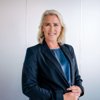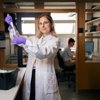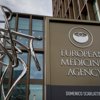Fritextsökning
Artiklar per år
Innehållstyper
-

New findings on the diseases that crushed Napoleon’s army
As if cold, starvation, and typhus weren’t enough. New research reveals that Napoleon’s defeated army also suffered from paratyphoid fever and relapsing fever during the retreat from Russia.
-

Recipharms AI-satsning får stöd från Gates-stiftelse
Svenska Recipharm får utökad finansiering från Bill & Melinda Gates Foundation för att utveckla AI-drivna tillverkningsteknologier. Syftet är att sänka produktionskostnader och förbättra tillgången till avancerade behandlingar i låg- och medelinkomstländer.
-

Karolinska och Akademiska utökar ATMP-samarbete
Ett fördjupat samarbete mellan Karolinskas centrum för avancerade terapier och motsvarande centrum i Uppsala syftar till att ge fler patienter tillgång till cell- och genterapier. Satsningen ska också stärka huvudstadsregionen som life science-kluster.
-

Orexo får USA-stöd för överdosläkemedel vid blandmissbruk
Uppsalabolaget Orexo har fått 8 miljoner dollar, motsvarande 75 miljoner kronor, av den amerikanska myndigheten Barda för att ta fram ett nasalt räddningsläkemedel mot överdoser.
-

Anna Törner: ”Varför inte slå till på en ADHD-diagnos till kampanjpris?”
”Det är självklart positivt att neuropsykiatriska diagnoser inte upplevs som stigmatiserande, men just när det gäller ADHD kan jag inte låta bli att undra om det gått för långt?”, skriver Anna Törner i en krönika om en diagnos som blir allt vanligare.
-

Wegovy approved in the U.S. for treatment of liver disease
The U.S. Food and Drug Administration (FDA) has granted accelerated approval for Novo Nordisk’s drug Wegovy to treat the serious liver condition known as MASH. The decision strengthens the company’s position in the field of metabolic diseases.
-

The top five most expensive drugs in 2025
New advanced therapeutic medicines are reaching the market, but their price tags remain exceptionally high. This year’s ranking of the most expensive drugs in the US reveals a common denominator: all are gene therapies administered as one-time treatments.
-

Kennedy stoppar 22 projekt inom mRNA-vaccin – experter varnar för följderna
USA:s hälsodepartement avbryter finansieringen av 22 projekt som utvecklar mRNA-baserade vacciner, och växlar över till vad som hävdas vara ”säkrare och bredare vaccinteknologier”.
-

BMS and venture capital giant form new company
The American pharmaceutical company Bristol Myers Squibb, together with the venture capital firm Bain Capital, is forming a new biotech company. The company will develop treatments for autoimmune diseases where there is currently a lack of effective therapies.
-

US Health Secretary Kennedy dismisses all vaccine experts – assembles new committee
Robert F. Kennedy Jr. has dismissed all 17 members of the CDC’s vaccine advisory panel. A new group of experts will be appointed directly by the Health Secretary, his department announced.
-

Mikael Kubista back with new venture after turbulent exit
Entrepreneur and researcher Mikael Kubista is starting a new company. Now he is also free to comment on the sequence of events that led to him losing ownership of his life's work – the company Tataa Biocenter. “Not only did they take our company away from us. They followed up by showering us with lawsuits,” he says.
-

Bico säljer bolag inom in vitro-testning och digital patologi
Bioteknikbolaget Bico avyttrar Mattek och Visikol, som integrerades i Mattek operationellt förra året, till Sartorius Lab. Köpeskillingen är på 80 miljoner dollar, motsvarande 807 miljoner kronor, på kassa- och skuldfri basis.
-

Success for Genmab's antibody-drug conjugate
The Danish company Genmab has received Japanese approval for its treatment for advanced or recurrent cervical cancer.
-

Prövning av pillervaccin mot covid-19 avbryts i USA
Det amerikanska hälsodepartementet har beordrat stopp för en statligt finansierad fas IIb-studie som skulle utvärdera ett potentiellt pillervaccin mot covid-19.
-

Cancer researcher: “We can do better and reduce suffering”
Lund University researcher Catharina Hagerling is developing innovative methods to understand metastatic cancer, aiming to create more targeted treatments for patients with disseminated cancer.
-

Investors portföljbolag köper diagnostikföretag – för 22 miljarder kronor
Advanced Instruments har ingått ett bindande avtal om att förvärva Nova Biomedical för 2,2 miljarder dollar, motsvarande cirka 22 miljarder kronor.
-

EMA varnar för icke godkända cellterapier
Icke godkända, och därmed olagliga, avancerade terapiläkemedel marknadsförs till patienter i Europa. Det uppger den europeiska läkemedelsmyndigheten EMA, som nu går ut med en varning till allmänheten.
-

Investment CEO: “The Nordics are outstanding in creating successful medtech companies”
Since the beginning of last month, Susanna Francke Rodau has been a partner and the new CEO of Segulah Medical Acceleration, which invests in medical technology. In an interview she tells about which companies the investment company prefers to invest in, which companies she believes in the most in the portfolio and why she accepted the new position.
-

First preterm infants study – a vital step for Neola
After years of developing an advanced lung monitoring system, Neola Medical has received some delightful news: permission to start its first clinical study on preterm born infants.
-

Grönt ljus för Kennedy sänker läkemedelsbolag
Flera läkemedelsbolag backar på börsen efter att senatskommittén godkänt Robert F. Kennedy Jr som kandidat till landets hälsominister.
-

She is CSL Behring's new Nordic General Manager
Since the beginning of january, Helena Bragd is the new Nordic General Manager for the biotech company CSL Behring and CEO of CSL Behring AB.
-

16 miljoner kronor till ATMP i Västsverige
Genom en miljonsatsning i Västra Götalandsregionen ska små och medelstora life sciene-bolag få stöd för att accelerera utvecklingen inom avancerade terapiläkemedel (ATMP).
-

New cell therapy raises hope for curing type 1 diabetes – "Never succeeded before"
For the first time, a patient with type 1 diabetes has undergone an islet transplantation using genetically modified insulin-producing cells that do not require immunosuppressive drugs. "A major immunological breakthrough," says Professor Per-Ola Carlsson, who leads the clinical study, to Life Science Sweden.